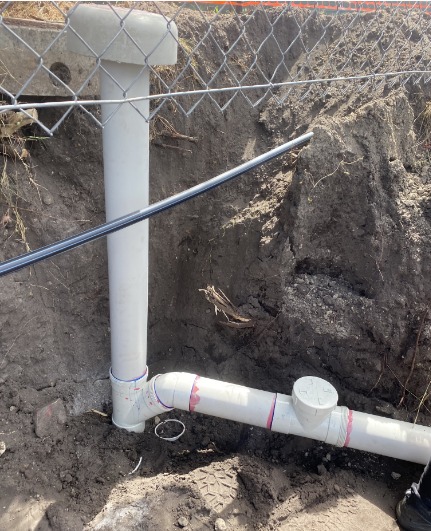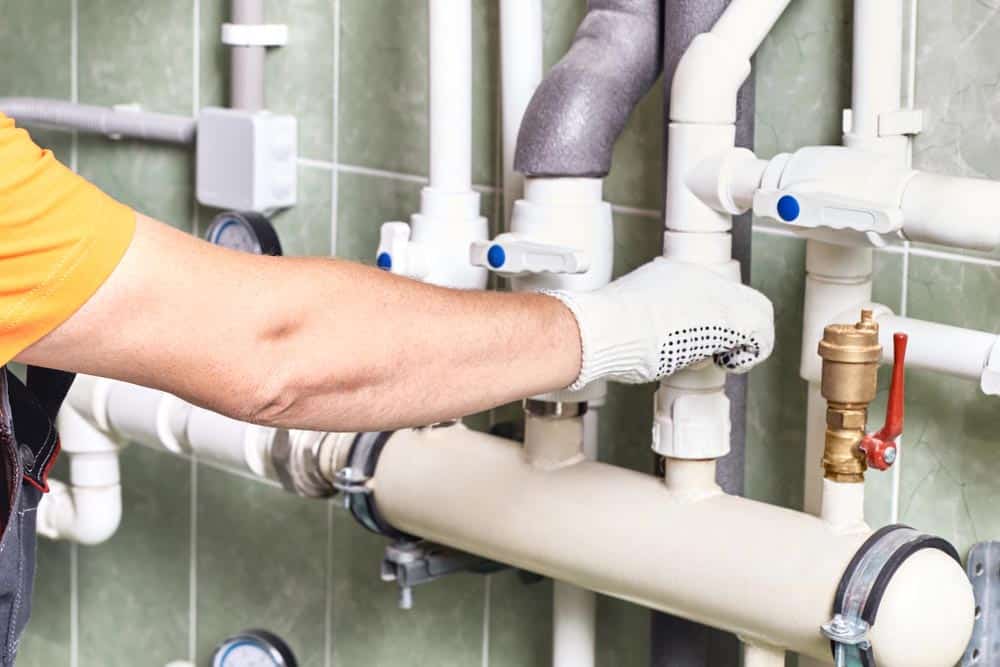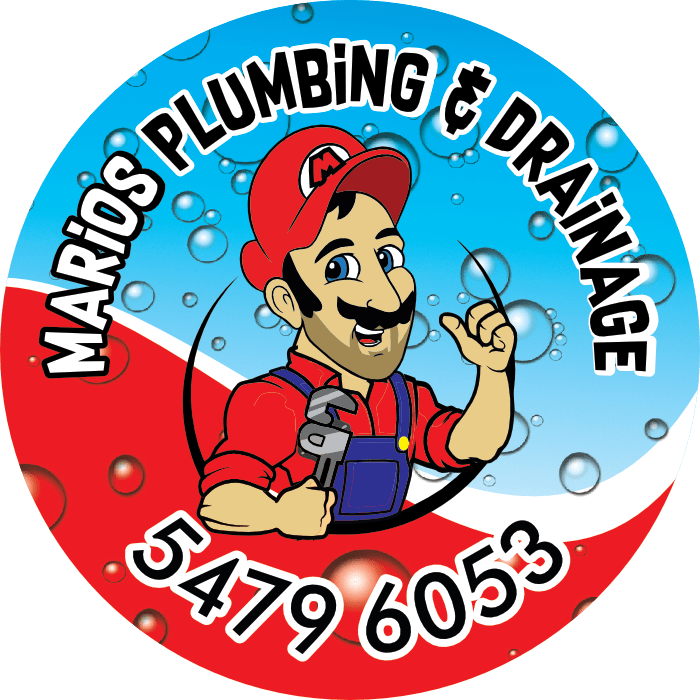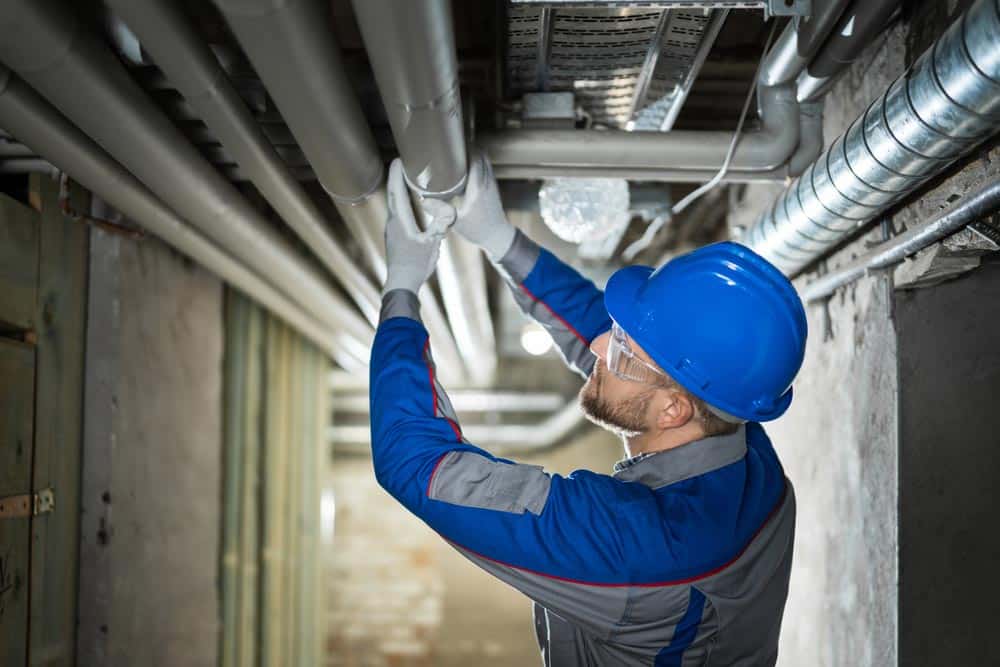Maintaining hygiene standards in commercial plumbing is crucial for ensuring the health and safety of both customers and employees. In environments like restaurants, hospitals, and office buildings, where large numbers of people gather daily, the plumbing systems play a pivotal role in preventing the spread of infectious diseases and maintaining overall cleanliness. Proper maintenance of plumbing fixtures such as sinks, toilets, and drainage systems is essential to prevent contamination and unpleasant odors. Commercial establishments must adhere to strict hygiene protocols outlined by health authorities to avoid legal repercussions and maintain a positive reputation. Regular inspections, timely repairs, and the use of appropriate cleaning agents are fundamental practices in upholding hygiene standards. By investing in professional plumbing services and adopting proactive maintenance strategies, businesses can safeguard against potential health hazards and ensure a hygienic environment for all occupants. This blog explores effective methods and best practices to uphold hygiene standards in commercial plumbing, offering practical insights for facility managers and business owners alike.
Importance of Hygiene in Commercial Plumbing

Maintaining impeccable hygiene standards isn’t just about appearances—it’s a fundamental aspect of ensuring the health and safety of employees, customers, and visitors alike. This responsibility extends to every facet of the business, including its plumbing systems. Whether you’re running a restaurant, a healthcare facility, or an office building, the hygiene of your plumbing infrastructure plays a critical role in preventing contamination, promoting cleanliness, and adhering to regulatory standards.
Preventing Health Risks
Commercial plumbing systems are integral to providing clean water and managing waste disposal. Without proper hygiene maintenance, these systems can become breeding grounds for harmful bacteria, viruses, and other pathogens. Contaminated water or surfaces can lead to serious health risks for anyone exposed, potentially causing illnesses ranging from gastrointestinal issues to respiratory infections. To mitigate these risks, regular cleaning, disinfection, and maintenance of plumbing fixtures, pipes, and water storage systems are essential. Implementing hygiene protocols ensures that your establishment remains a safe environment for all.
Upholding Reputation and Customer Trust
In the competitive landscape of commercial enterprises, reputation is everything. Maintaining high standards of cleanliness and hygiene, including in plumbing systems, directly influences how customers perceive your business. A clean and well-maintained environment not only enhances customer experience but also builds trust and loyalty. Imagine visiting a restaurant where faucets are leaking, or a hotel where the restroom smells foul due to neglected plumbing—such experiences can tarnish a business’s reputation and drive customers away. On the contrary, businesses that prioritize hygiene are more likely to attract and retain customers who value cleanliness and quality.
Regulatory Compliance
Government regulations and health codes mandate specific hygiene standards that businesses must meet, especially concerning plumbing systems. These regulations are designed to protect public health and ensure that commercial establishments operate safely and responsibly. Non-compliance with these regulations can result in fines, penalties, or even closure of the business in severe cases. Therefore, staying informed about local health codes and maintaining strict adherence to hygiene standards not only prevents legal repercussions but also demonstrates your commitment to operating a safe and compliant establishment.
Minimizing Operational Disruptions
Neglecting hygiene in commercial plumbing can lead to operational disruptions that affect business continuity. A clogged drain, a burst pipe, or a sewage backup not only pose health hazards but also necessitate costly repairs and downtime. These issues can disrupt daily operations, inconvenience customers, and potentially damage valuable assets. By implementing routine maintenance and proactive hygiene practices, businesses can prevent such plumbing emergencies. Regular inspections, timely repairs, and preventive measures reduce the likelihood of unexpected breakdowns, ensuring smooth operations and minimizing disruptions.
Environmental Responsibility
Beyond health and regulatory concerns, maintaining hygiene in commercial plumbing aligns with environmental responsibility. Water conservation, proper waste disposal, and using eco-friendly cleaning products are integral to reducing your business’s environmental footprint. Leaky faucets, inefficient water heaters, and outdated plumbing fixtures contribute to water wastage and energy inefficiency. By investing in water-saving technologies and adopting sustainable practices, businesses not only save on utility costs but also contribute to conserving precious resources and protecting the environment for future generations.
Choosing the Right Plumbing Fixtures for Hygiene

When it comes to maintaining high standards of hygiene in commercial settings, selecting the right plumbing fixtures is crucial. The fixtures you choose can significantly impact cleanliness, ease of maintenance, and overall hygiene standards within your establishment. Whether you’re managing a restaurant, healthcare facility, or office building, investing in fixtures that are durable, easy to clean, and hygienic can enhance both the aesthetic appeal and functional efficiency of your plumbing systems.
Understanding Hygiene Requirements
Before selecting plumbing fixtures, it’s essential to understand the specific hygiene requirements of your industry and establishment. For instance, healthcare facilities may have stricter guidelines regarding infection control and sanitation compared to office buildings or retail spaces. Consider consulting with a plumbing professional or hygiene expert to determine the appropriate fixtures that meet regulatory standards and best practices for your business.
Opting for Touchless Technology
Touchless or hands-free plumbing fixtures, such as sensor-operated faucets, soap dispensers, and flush valves, have become increasingly popular in commercial settings. These fixtures minimize direct contact with surfaces, reducing the spread of germs and improving overall hygiene. They are particularly beneficial in high-traffic areas where frequent handwashing or restroom use is common.
Choosing Easy-to-Clean Materials
Select plumbing fixtures made from materials that are easy to clean and maintain. Stainless steel, porcelain, and certain types of plastic are durable materials that resist staining, corrosion, and bacterial growth. Avoid materials with intricate designs or rough surfaces that can harbor dirt, grime, and bacteria, making cleaning more challenging and less effective.
Considering Antimicrobial Properties
Some plumbing fixtures are designed with antimicrobial coatings or materials that inhibit the growth of bacteria and fungi. These fixtures help maintain cleaner surfaces and reduce the risk of cross-contamination. While antimicrobial properties can be beneficial, it’s essential to follow manufacturer guidelines for cleaning and maintenance to ensure their effectiveness over time.
Evaluating Water Efficiency
In addition to hygiene considerations, evaluate the water efficiency of plumbing fixtures. Water-saving faucets, toilets, and urinals not only reduce water consumption but also lower utility costs. Look for fixtures certified by organizations like WaterSense, which ensure optimal performance while conserving water resources.
Hygiene Tips for Specific Commercial Settings
Maintaining high hygiene standards is essential across various commercial settings to ensure the safety and well-being of employees, customers, and visitors. Here are key hygiene tips tailored for specific industries:
- Restaurants and Food Service Establishments: Implement rigorous cleaning schedules for kitchen surfaces, utensils, and equipment. Train staff on proper food handling and hygiene practices. Regularly inspect and maintain plumbing fixtures to prevent contamination of food and beverages.
- Healthcare Facilities: Follow strict infection control protocols, including frequent disinfection of high-touch surfaces. Use antimicrobial plumbing fixtures and implement water management plans. Ensure compliance with healthcare hygiene regulations and standards.
- Offices and Corporate Environments: Encourage regular handwashing and provide accessible hand hygiene stations. Clean and disinfect shared spaces such as restrooms and break areas daily. Maintain HVAC systems and plumbing fixtures to enhance indoor air and water quality.
- Hospitality Industry (Hotels, Resorts): Use touchless or sensor-operated plumbing fixtures to minimize contact. Launder linens and towels at high temperatures to kill bacteria and viruses. Train housekeeping staff on hygiene best practices and sanitation procedures.
Conclusion
Maintaining high hygiene standards in commercial plumbing is not just about compliance; it’s about ensuring the safety and well-being of everyone who interacts with your establishment. Mario’s Plumbing and Drainage understands the critical importance of clean and efficient plumbing systems in commercial settings on the Sunshine Coast. Whether you’re managing a restaurant, office building, or healthcare facility, our expert team is dedicated to delivering top-notch plumbing services that meet rigorous hygiene standards.
For any inquiries about how we can assist in maintaining your commercial plumbing hygiene, feel free to contact Mario’s Plumbing and Drainage at 07 5479 6053. Our knowledgeable staff is ready to discuss your specific needs and provide tailored solutions to ensure your plumbing systems are in optimal condition. Trust Mario’s Plumbing and Drainage to uphold the highest standards of cleanliness and functionality in your commercial space, keeping your environment safe and compliant.


